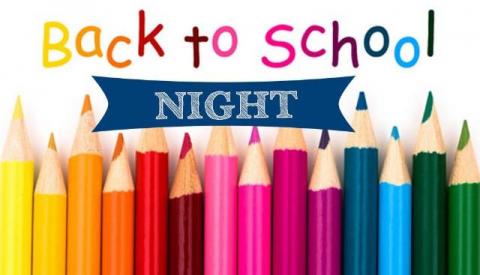We all know the jingle: “No more pencils, no more books, and no more teachers’ dirty looks!” And though teachers hardly scowl at students these days, they definitely have views on everything from how to help your child learn those multiplication tables to the supplies educators want banned from the classroom (no more glitter, please!).
To provide insight into their world—and maybe offer a few helpful bits of advice—we asked teachers to share some things they would like parents to know. Got a pencil? You’re already a step ahead.
Summertime Prep Strategies
-
Encourage poolside reading. “When kids don’t read at least four or five books for pleasure over the summer—not the mandated book the teacher assigns—they show up in September ill-prepared for the higher level of thinking required in the new grade.” – Hillary Tubin, literacy consultant from Norwalk, Connecticut
-
Remember your attitude is contagious. “Speak positively about the new school year. Pick out clothes the night before, go to bed early, and wake up a little earlier to avoid lateness stress. Stress-free mornings help children feel secure and confident.” – Kathy Keller, second grade teacher, Englewood, New Jersey
-
Instill confidence in young kids. “Read books with your child about the first day of school and separation anxiety. Practice self-help skills, such as dressing, undressing and handwashing. Your child will feel more confident when they are asked to do these things at school. Ease into the routine.” – Zora Aslam, nursery school teacher, Englewood, New Jersey
Smart Supplies—and What to Leave at Home
-
You can never have too many pencils. “You have no idea how many pencils I go through each day! I know pencils seem like nothing, but when you teach 70+ students a day, and more than half do not bring a pencil and/or paper to class, it becomes a huge expense, which ends up coming out of the teacher’s own pocket. I have even tried tying the pencils to the desks!” – Crystal Rodgers, middle school math teacher, Freeland, Pennsylvania
-
Make a note. “An item kids should have to start the school year: lots and lots of Post-it Notes. They are great when reading books or textbooks because kids can stick them to a page and keep track of their thinking without getting distracted or disturbing their ‘flow.’” – Hillary Tubin
-
Your kid has enough sparkle. “I think I speak for teachers everywhere when I say one thing your child definitely doesn’t need in school is glitter glue!” – Katie Martin, fourth grade teacher, Austin, Texas
A Teacher’s Life
-
Worries go both ways. “I wish parents knew we were just as nervous as their kids are on our first day in the classroom as a teacher. And those nerves visit me every time I get a new class—we get how it feels!” – Dee Elgie, teacher of special-needs English, Surrey, U.K.
-
Mind your manners. “Polite and respectful students learn more in school and succeed faster… remember, parents are every child’s first teacher, and your children learn best from you.” – Crystal Rodgers
-
Gift thoughtfully. “We really do not need any more ‘teacher’ theme gifts. What we do need are more classroom supplies, games, materials or gift cards to purchase these things. A Christmas ‘gift’ of tissues, wipes and hand sanitizers is much more appreciated than a ‘world’s greatest teacher’ mug or ornament.” – Rhonda Swanson Rusk, special education teacher, Rock Island, Illinois
How Parents Can Help
-
Be involved. “We are here to help students succeed. Parents play a big role in that. Try to make time to come to conferences. Read the syllabus we send home during the first week, and reach out with questions/concerns. We’re just as nervous calling or emailing you as you are us—I guarantee it!” – PJ Tolbert, seventh grade English teacher, Wichita, Kansas
-
When it comes to wardrobe, put function over form. “Kids are going to be moving, running, dancing and jumping. They should come to school in clothes they can move in and shoes they can run in. Dress kids so they can be kids!” – Katie Martin
-
Remember we’re on the same team. “We share the same goal; we both want to see your child succeed. We each have valuable information to contribute to finding the right way to make that happen, so I invite every parent to a conversation to help me understand what your goals are for the year and what has—and hasn’t—worked in the past.” – Ruth Wilson, founder of Brightmont Academy, based in Woodinville, Washington
